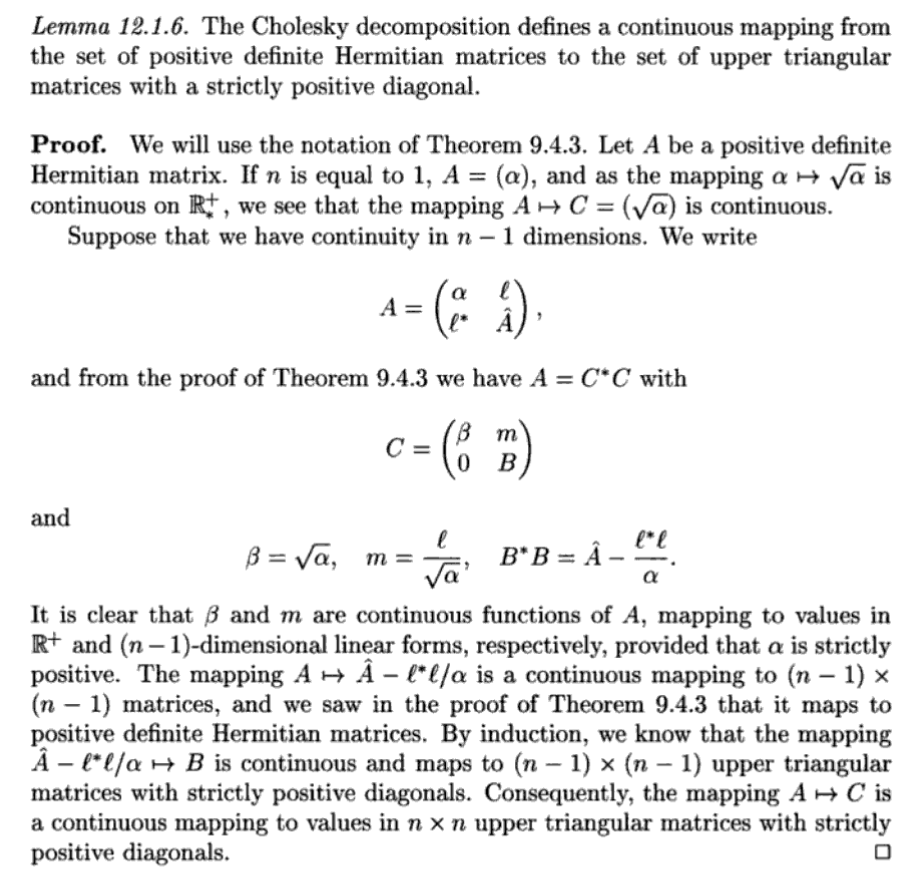It most books dealing with Cholesky decomposition, or it is variants, one finds a statement of the form if $A$ is symmetric $k\times k$ positive semi-definite (non-negative definite) then the $k\times k$ matrix $L$ solving $$ A=RR^{\top}. $$ Note: I do not require that $A$ is positive definite, so $A^{-1}$ may not exist. However, I do require that it is symmetric.
Following his post, we see that under additional constraints there is a unique choice
Theorem 10.9. Let $A\in\mathbb R^{n\times n}$ be positive semidefinite of rank $r$. (a) There exists at least one upper triangular $R\in\mathbb R^{n\times n}$ with nonnegative diagonal elements such that $A = R^TR$. (b) There is a permutation $\Pi$ such that $\Pi^TA\Pi$ has a unique Cholesky factorization, which takes the form $$ \Pi^TA\Pi=R^TR,\quad R=\left(\begin{matrix} R_{11} & R_{12} \\ 0 & 0\end{matrix}\right), $$ where $R_{11}$ is $r \times r$ upper triangular with positive diagonal elements.
However, I cannot find the source of book or paper saying map $A \to R$ is continuous.

